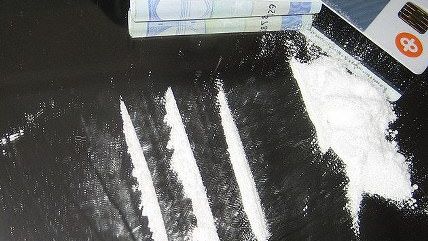Why We Have Drug Scares
Drugs and alcohol may embody greater social problems that we cannot face up to in themselves.

How many drug scares can you identify? Jacob Sullum identified these from 2013: marijuana, Salvia divinorum, cocaine,"bath salts," absinthe, Four Loko. Well, let's go back a ways. Of course there was crack. There were horse tranquilizers. There was OxyContin. Before Oxy there were Quaaludes, brought back into public consciousness by Martin Scorsese's The Wolf of Wall Street. Also, recently, the whole raft of prescription painkillers have been identified as the fastest growing drugs of abuse. There was ecstasy. And between ecstasy and bath salts were the whole caboodle of "designer drugs." Oh, there were psychedelics, starring LSD. And what about performance-enhancing drugs, which have recently been highlighted in the case of Alex Rodriguez and so many major league baseball players?
I know, I've missed plenty. Like my favorite—the combination of alcohol and caffeine, as in Irish Coffee or Kahlua, about which a Yale addiction specialist issued this warning in HuffPost: "Combining alcohol and caffeine is—in one word—crazy. Don't do it! It has an excellent chance of hurting you, and a fairly good chance of killing you." And, of course, we have always feared alcohol and heroin.
On February 18, the Drug Policy Alliance is issuing a new report by Carl Hart, "Methamphetamine Dangers Exaggerated," and DPA is convening a panel on February 20, "Methamphetamine: Fact vs. Fiction and Lessons from the Crack Hysteria."
So, another drug hysteria has hit the headlines. Actually, it has already been bypassed, prompted in part by Philip Seymour Hoffman's death and the governor of Vermont officially designating heroin use as an epidemic in his state (many label it a national epidemic)—so much so that when MSNBC's normally sober Chris Hayes interviewed Carl Hart, his focus was entirely on heroin.
But, although Hart's research concerns meth, his non-scare approach with heroin is the same. As he said in his New York Times interview with John Tierney: "Eighty to 90 percent of people who use crack and methamphetamine don't get addicted. And the small number who do become addicted are nothing like the popular caricatures." (Hart's ReasonTV discussion is among the funniest treatments of drug scares of all time.) But when I saw Hart interviewed in the Reason forum at which he appeared, he said the same thing about heroin (graciously citing my own writings).
I said the following in Love and Addiction, as I noted in my article in the current (March) issue of Reason:
We argued not only that the distinction between "addictive" and "habituating" drugs [including marijuana] should be abandoned but that nondrug activities, including love, sex, eating, and gambling, could also be addictive, or not, depending on the way people became involved in them and how destructive the involvement was. As we wrote in 1975, "If addiction is now known not to be primarily a matter of drug chemistry or body chemistry, and if we therefore have to broaden our conception of dependency-creating objects to include a wider range of drugs, then why stop with drugs? Why not look at the whole range of things, activities, and even people to which we can and do become addicted? We must, in fact, do this if addiction is to be made a viable concept once again."
In other words, Hart and I are both saying, drugs just don't deserve to be placed in a special scare category.
Why does the drug scare meme appear so regularly in America? If we accept at face value that, indeed, so many substances have reared their ugly, panic-inspiring heads in such regular succession, then it seems we have never gotten a handle on drugs in America, and we never will, as drug scares stretch behind and before us ad infinitum. Hart argues, as I did before him, that drugs and alcohol embody greater social problems (prejudice, alienation of segments of the population, racial and age divisions) that we cannot face up to in themselves. However, by embodying these irresolvable social problems and dilemmas in drugs, we hold out the ever present hope that American medicine will solve them, most likely using pharmaceuticals, as Nora Volkow, director of the National Institute on Drug Abuse, asserts in a recent opinion piece in the most prestigious scientific journal in the world, Nature.
And that's the greatest drug scare of all.


Show Comments (66)